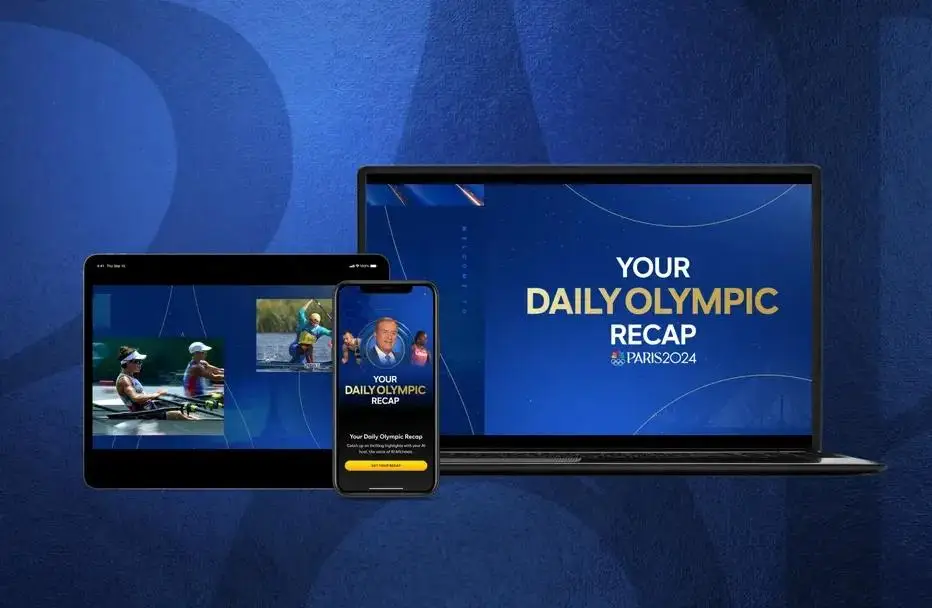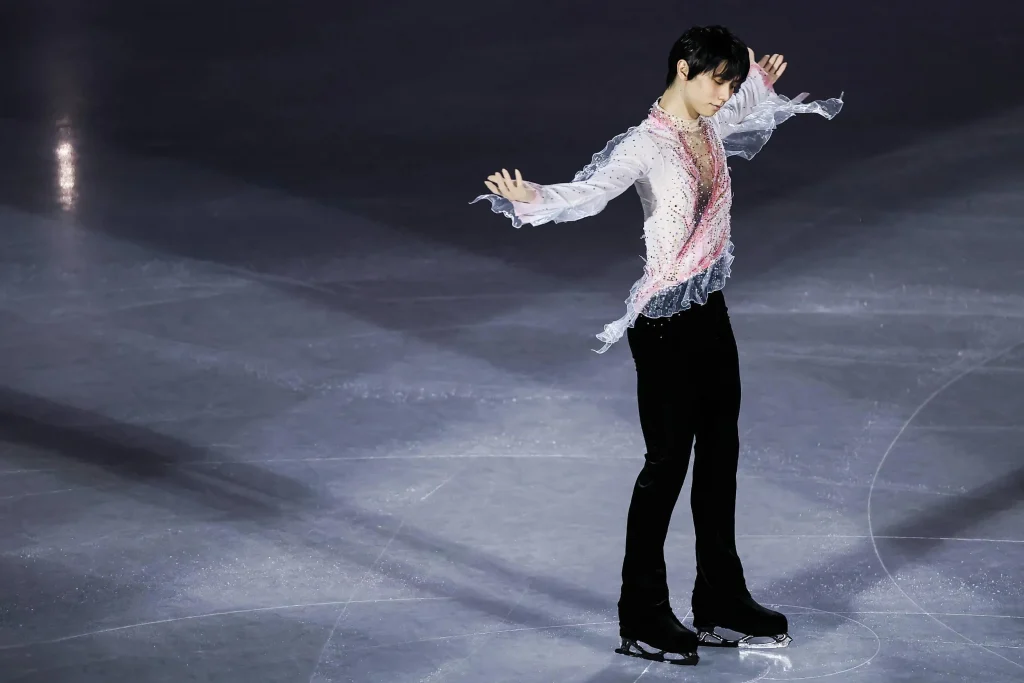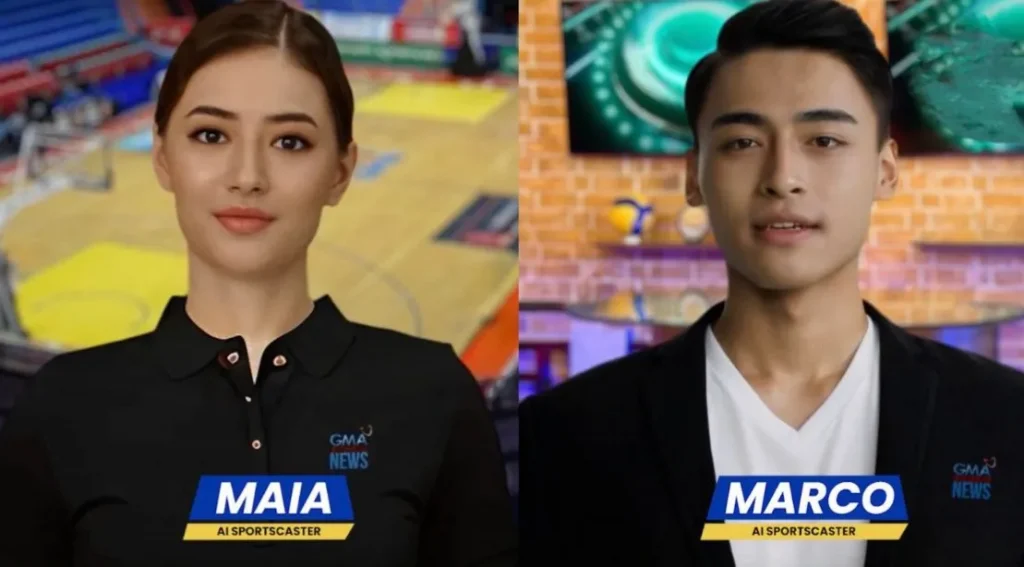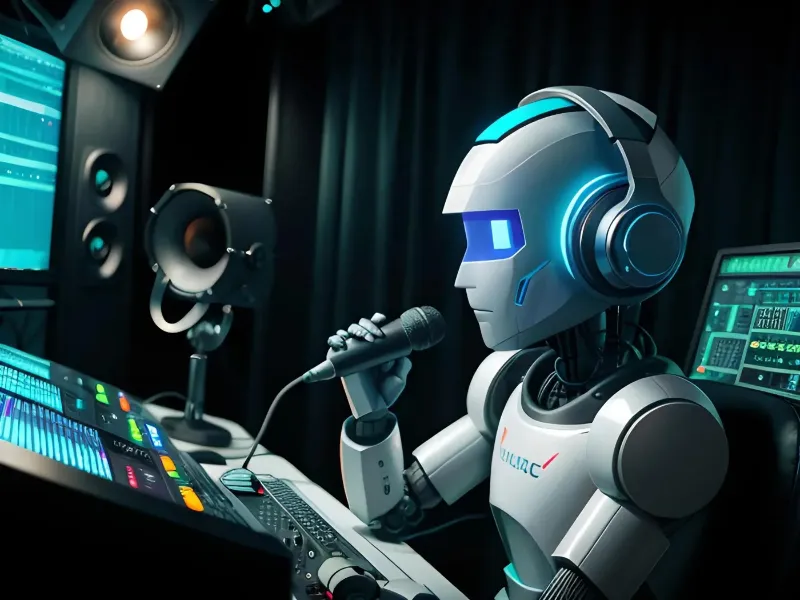- AI virtual sports anchors have efficiency advantages, but the personality charm of human anchors is difficult to replace.
- The Paris Olympic Games will take the lead in introducing a revolutionary innovation – virtual sports anchors are officially on the job, opening a new chapter in AI commentary.
OUR TAKE
AI virtual sports anchors will provide real-time commentary and precise analysis, while also tailoring content to viewers’ preferences and enhancing the viewing experience with interactive features that provide round-the-clock global coverage. However, not everyone has embraced AI sports anchors because of their shortcomings compared to real people.
–Zora Lin, BTW reporter
In the new wave of technological development, sports reporting is ushering in a revolution. During the Paris 2024 Olympic Games, NBC introduced artificial intelligence virtual sports anchors for the first time, bringing a new reporting experience to the Paris Olympic Games, marking the beginning of a new era of intelligent broadcast of the Olympic Games.
AI virtual sports anchor: New trend of Olympic Games watching
NBC is expected to generate nearly 7 million personalised Olympic highlights videos during the Paris Games. This innovative initiative will provide audiences with tailor-made Olympic highlights to meet the individual needs of different audiences, so that everyone can enjoy their own Olympic stories.
The Paris Olympic Games will take the lead in introducing a revolutionary innovation – virtual sports anchors are officially on the job, opening a new chapter in AI commentary. Nbcuniversal is using generative artificial intelligence (AIGC) and AI speech synthesis technology to create a new feature called “Your Peacock Daily Olympic Recap” on its online streaming platform.
The voice of the AI virtual anchor is based on the content that the famous sports commentator AI Michaels used to broadcast on NBC. This not only retains Michaels’ unique sound charm, but also infuses the innovative vitality of AI. AI Michaels’ commentary will bring both familiar and fresh Olympic experience to the audience.

During the Paris Olympic Games, the exclusive Olympic AI anchor will take you to the front line of the arena and feel the passion and romance of Paris.
Peacock subscribers will be able to receive a personalised video playlist generated daily during the Games based on their preferences, including racing moments and other types of content (behind-the-scenes, top plays, top moments, etc.), accompanied by voice commentary from legendary broadcaster Al Michaels using artificial intelligence. The commentary text and speech synthesis are generated by models trained on Michaels’ past commentary performance data.
When I was asked about it, I was skeptical, but obviously curious. Then I saw a presentation detailing their ideas. I decided to join.
AI Michaels said in an NBC Sports news release
It can be said that AI technology has fully penetrated into all aspects of the Olympic Games, not only cracking the previous pain points of watching games, but also bringing new experiences at the level of communication, watching and interaction, greatly improving people’s sense of participation and immersion.
Also read: UK government announces $41M boost for AI projects
Also read: Nvidia’s Clara: AI for personalised healthcare
Great potential for AI applications in the future
According to market research firm Mordor Intelligence, the global AI hardware market will grow at a compound annual growth rate of more than 20% in recent years, and the market size is expected to reach tens of billions of dollars by 2025.
The perfect integration of science and technology and sports makes every game a witness of history and every breakthrough possible. According to market research firm Mordor Intelligence, the AI+ sports market reached $6 billion in 2024 and is expected to grow to $21 billion by 2029, showing a compound annual growth rate of 28.69%. This prediction shows the broad prospects for the application of AI technology in the sports field.
Paris Olympic Games provided an excellent opportunity for Chinese enterprises to show their strength and expand their market. By participating in and sponsoring the Olympic Games, Chinese enterprises not only enhance their brand influence, but also maximise their business value through a variety of channels.
Dr. Luo Rentong, a practical expert on the application of digital economy
By contrast, Warner Bros. Discovery, which holds broadcast rights in Europe, says it decided not to make use of AI for Paris.
“We’ve yet to truly flesh out how AI is going to benefit the way in which we tell the story of live sport and of an athlete competing,” “I don’t think it’s too far off, and I’m quite sure AI will have a much more impactful role at LA ’28, but AI is not a driving force of technology for us at Paris 2024.”Warner Bros. Discovery Sports executive Scott Young told IBC 365.
Pop quiz:
What is the opening date of the Paris Olympic Games?
A. July 25
B. July 26
C. July 27
D. July 28
The correct answer is at the bottom of the article.
AI sports anchors do not replace human anchors
AI virtual sports anchors may have advantages in the efficiency and consistency of information transmission, but in terms of emotional expression, personality charm and flexible response, the advantages of human anchors are still difficult to be completely replaced.
1. Emotional appeal: Human sports anchors can convey strong emotions through their tone, emotional expression and body language, inspiring excitement and passion in the audience. Although AI can simulate emotions, such simulations often lack true emotional depth and authenticity.
Imagine watching an intense and thrilling sports match, but the commentary on one side is delivered in a mechanical, formulaic manner. Doesn’t your enthusiasm immediately get dampened?

2. Beauty of language: Real anchors can create aesthetic language expressions through improvisation and personal style. They are able to adjust the language style according to the atmosphere of the game and the reaction of the audience, and AI’s language generation, while it can be smooth, often lacks this natural beauty and flexibility.
With its unique literary charm and profound humanistic care, the sports commentaries of CCTV hosts have won the love and praise of the vast audience.
Describing Guan Chenchen’s women’s balance beam final, the commentator wrote: “It’s safest for a giant ship to be moored in the harbor, but that’s not what a giant ship is built for. “The analogy emphasises the value of challenging difficult moves.
Famous CCTV commentator Chen Ying commented on Japanese figure skater Yuzuru Hanyu: “He reminds me of a sentence — fate whispers to a warrior: You can’t withstand the storm. The warrior whispers back, ‘I am the storm.’ “
Even in the endless dark night, as long as I firmly believe that I was born as a mountain rather than a stream, and that I was born as a talented person rather than a weed, I will stand on the shoulders of great men and despise mediocre cowards. This belief is enough to help athletes overcome the darkest moments of their lives. In the Beijing Winter Olympics, Jin Boyang defeated Jin Boyang.
Chen Ying, famous CCTV commentator
3. Personal charm: Many viewers are highly dependent on the personal charm and unique style of live anchors. This charm often comes from the personality, experience and unique way of telling the anchor, which is difficult for AI to fully replicate this unique personal trait.
4. Ability to cope with emergencies: In the face of emergencies, live anchors can quickly adjust their expressions and skillfully deal with various unexpected situations. While AI can be programmed to deal with common problems, human beings are often better at flexibility and judgment in the face of complex and unforeseen contingencies.
5. Depth of cultural and background knowledge: Human anchors usually have a deep cultural background and rich personal experience, which enables them to incorporate more cultural and historical references in their comments, making the content more in-depth and layered. Although AI can obtain a lot of information, the understanding and application of this information may not be as natural and detailed as that of human anchors.
6. Interactivity: In the process of live broadcasting, real anchors can interact with the audience in real-time, answer questions, and share personal insights, which is usually more vivid and interesting. AI can interact, but that interaction can seem mechanical and limited.

Where AI sports anchors go
This innovative move by NBC is the perfect combination of technology and humanity. It not only enriches the content of sports coverage, but also provides the audience with a new perspective to watch the Olympic Games. This combination, let us see the infinite possibilities of sports coverage, but also for the audience more in-depth and comprehensive understanding of the Olympic story has brought greater convenience.
Dr. Leon Hawthorne, a visionary researcher, has worked as a news anchor at prominent media outlets such as cnn and cnbc. He conducted a groundbreaking research project that aims to evaluate the integration of AI-generated virtual humans as on-screen news anchors, exploring their impact on audience engagement, perception, and preferences.
The study found that the vast majority of participants preferred a human host, who, according to the survey results, they found to be the most charismatic, knowledgeable and trustworthy. The three non-human models were considered below average.
Dr. Leon Hawthorne, a visionary researcher
In addition, the study explores the concept of “inconceivable” in the design of virtual human bodies – the fine line between realism and artificialism. Virtual human avatars score highly on emotional engagement, but not in a positive way. This suggests that its aesthetic produces strong emotions, but those emotions are mainly negative. Participants also reported high levels of “fear” when they saw the avatar, indicating that they found the design incredible. Another notable finding was the importance of lip synchronisation in creating a convincing virtual presenter. This finding highlights the critical role of realistic animation in promoting audience engagement.
While real human anchors are favored for their authenticity, AI-generated virtual anchors promise to deliver non-serious news content through engaging narratives. This phenomenon highlights the need to carefully consider design to mitigate incredible sensory responses to increase user acceptance of AI.
In this day and age, everyone can access the news they need, when they need it, in a format that resonates with them. By adopting AI-driven solutions, IT teams can help usher in a new era of media innovation.
With the continuous development of AI technology, future sports reports will be more intelligent and personalised. The introduction of AI virtual anchors is just the beginning of this change. Let’s wait and see how AI technology will further change our experience and bring more surprises.
The correct answer is C, July 27.

